Did you know that online courses are projected to surpass the traditional educational sector's growth by 2025? That's right—this booming industry is redefining how we learn, and you might be missing out.
With the rapid digital transformation, the need for skill adaptation and continual learning has never been so critical. Whether you're looking to excel in your career or pivot into a new field, online courses offer unmatched flexibility and breadth.
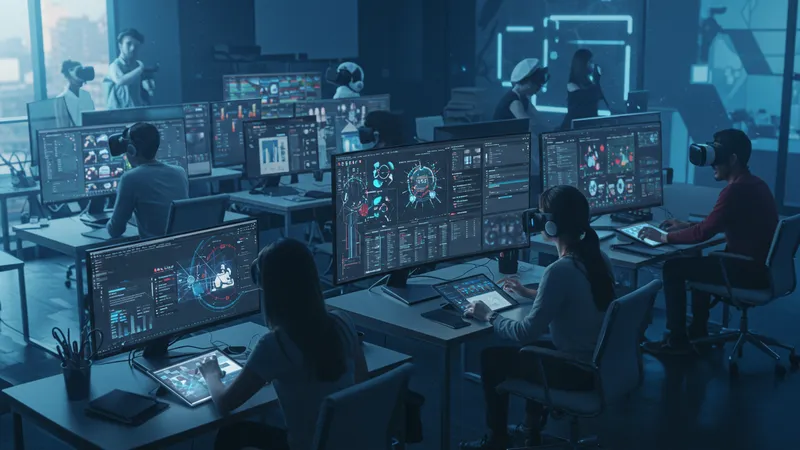
Online learning has shifted from being a secondary option to a primary educational path. With staggering enrollment figures and platforms hosting thousands of courses, the demand is real. Remember when e-learning was a mere alternative? Now, it governs the future of education! But that’s not even the wildest part…
Consider the global accessibility. From metropolises to villages, all that’s required is an internet connection, and suddenly, a world-class curriculum is just a click away. Forget geographical limitations—online courses tear down these barriers. But what's truly groundbreaking may surprise you...
Stay with us as we dive into the hidden truths about online courses. What happens next shocked even the experts...
While many consider online courses as a cheaper alternative to traditional schooling, hidden expenses often lurk beneath the surface. The cost of course resources, additional certifications, or even technology upgrades can quickly add up. Did you know some students end up spending more on technology upgrades than on the course fees themselves?
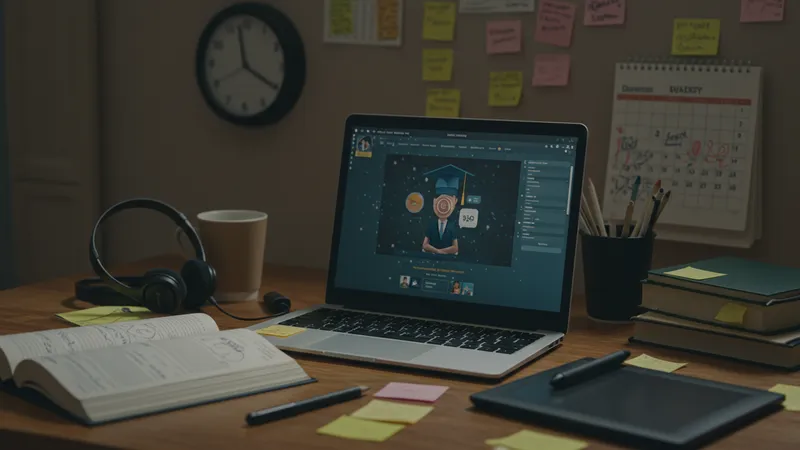
Another lesser-known factor is time management. Although flexible scheduling is a major draw for online courses, it demands incredible discipline. Without the structured timelines of physical classrooms, it’s daunting for many to keep pace, leading to a surprising number of unfinished courses. However, there's a twist you might not expect...
Moreover, the absence of physical networking is an unforeseen cost. Traditional education frequently offers in-person networking that directly feeds career opportunities. In digital courses, innovative methods like virtual meetups attempt to fill this gap but don't always hit the mark. Yet, what you'll discover next might change your perspective on this forever...
Yet, potential drawbacks are overshadowed by success stories, driving an upward trend in enrollment. Navigating these hidden costs becomes easier with insider strategies. If you think we've unveiled it all, hold on tight—there's more to dissect in this evolving educational phenomenon.
One of the biggest myths about online courses is that they merely consist of video lectures. In reality, interactivity is now at the heart of virtual education—quizzes, group assignments, and live sessions make learning dynamic. For instance, some platforms offer instant feedback on graded quizzes, enhancing the learning experience. But what else is brewing behind this digital curtain?
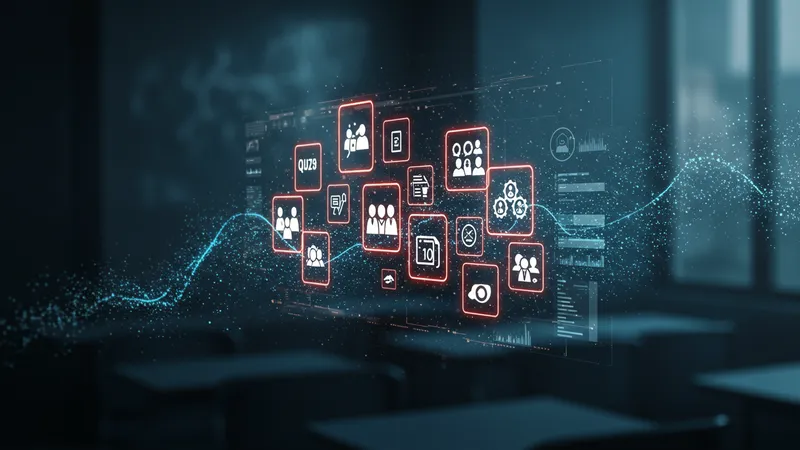
Advanced platforms are harnessing AI to tailor the learning experience. Personalization engines adapt content delivery according to individual learning speeds and preferences, which significantly boosts engagement and retention rates. Imagine a learning path created just for you—intrigued yet?
Communication tools have evolved extensively since the earliest days of e-learning. On many platforms, forums or live chat functions provide spaces for peer and instructor interaction, sometimes rivaling in-person interactions. Yet, it’s the unexpected resourcefulness in these digital communities that truly stands out...
All these innovations collectively dispel the misconception that online learning is isolated or passive. While methodologies continue to mature, staying informed could mean the difference between a diploma collecting dust and a thriving career, powered by passion and knowledge. What's next might surprise you.
Soft skills often take a back seat in discussions about online courses. However, these 'hidden gems' frequently gain polish through the digital learning journey. Communication, self-discipline, and digital literacy are just a few that come into play and evolve naturally. When we think about it, doesn’t this add another dimension to the value proposition of online courses?

Consider self-discipline. The very nature of e-learning requires a self-motivated initiative far beyond traditional setups. As learners juggle personal and professional commitments, they organically develop time management and goal-setting skills. Sounds like a surprising growth opportunity hiding in plain sight, doesn’t it?
Then, there are digital literacy advancements. As you engage with diverse tools, whether for learning or collaboration, digital fluency becomes an unintended yet invaluable benefit. Imagine drafting professional emails or managing sophisticated virtual collaboration tools without a tech background. Unexpected? Absolutely.
In virtual classrooms, there's an emphasis on written communication, which enhances one's ability to articulate ideas succinctly. These refined skills often translate well into the workplace, influencing career progressions positively. Curious about how these translate into real-world success? There's another layer you haven’t peeled yet...
You might have wondered if employers truly value online certifications. Recent studies reveal an intriguing shift in perception. Almost 60% of employers now view online degrees as credible as traditional ones, especially when backed by recognized institutions. Have the tides finally turned?

But what's more fascinating is how specific industry-centric courses are commanding respect. Certifications in coding, digital marketing, and data science are often seen as signals of initiative and self-learning. Yet, there’s a caveat to this growing appreciation not everyone is aware of...
Another aspect is the alignment of online courses with the ever-changing demands of businesses. Employers appreciate candidates who evolve with these shifts, leveraging newly acquired knowledge to tackle contemporary challenges. Doesn’t that make online learning almost indispensable today?
The growing employer acceptance of remote certifications opens up pathways previously considered unconventional. As the workplace becomes more digital, might online learning be the new gold standard? An astonishing insight lies just ahead...
Mentorship is often overlooked in online courses. Yet, many educational platforms incorporate mentoring programs to guide learners through their educational journeys. Access to expert insights provides invaluable support for practical applications of theoretical knowledge. This could explain the increasing retention and success rates. Intriguing, right?

The format varies. Some platforms offer one-on-one mentoring, while others form groups led by industry veterans. Mentorship complements self-paced learning by offering personalized guidance, something you might not have realized was part of the e-learning package.
These mentorship networks often extend beyond course durations, evolving into professional connections that assist even post-certification. Imagine a career update from someone within your mentorship circle—wouldn’t that be a game-changer?
As the influence of mentors grows, the role they play in bridging educational content and real-world application becomes instrumental. How will this shape the future of online learning? You might want to read on to find out...
The focus has shifted from degrees to skills in many sectors. Online courses expedite this transition, offering targeted skill development over traditional curriculums that can lag behind industry standards. Could skill-based learning be the catalyst for preparing the workforce of tomorrow?
Short, high-intensity courses focusing on concrete skills, such as advanced Excel techniques or cross-platform app development, deliver immediate value. These aren't just add-ons but vital stepping stones in career progressions today.
Platforms capitalize on this need by frequently updating content, ensuring alignment with market demands. Fast-paced industries like tech and digital marketing benefit significantly—but there’s a surprising catch!
Skill-based learning emphasizes real-world applications and project-based evaluations. As the emphasis shifts, does this predict a future where traditional degrees might take a back seat? Turn the page to discover where we’re heading...
Imagine a learning dashboard adjusting to your strengths and weaknesses in real-time. Learning analytics makes this a reality, tracking progress and performance to personalize your learning journey. This is no longer a far-fetched idea but an expanding reality in online education.

These analytics enable instructors and students to identify gaps and strengths, elevating personalized learning to unprecedented heights. This level of detail transforms the virtual classroom experience, turning data into a powerful educational ally.
Through analytics, platforms can adapt content dynamically, ensuring learners are neither overwhelmed nor under-stimulated. Could this mean an era where dropout rates plummet? But there’s an unexpected snag too.
This data-driven approach can also flag wider educational trends, forecasting shifts in demand for various skills. Are you ready for an educational matrix as malleable as your interests? What lies beyond this analytical revolution?
The intersection of online learning and mental health presents a critical topic. Flexibility is a boon; however, the solitary learning environment can sometimes exacerbate feelings of isolation. Ironically, isn’t it supposed to be liberating?

Nevertheless, many platforms recognize this, implementing strategies like peer discussions and mental health resources designed for virtual settings. Student wellness is increasingly becoming a core component of the e-learning experience. Are we moving towards a more holistic approach?
Moreover, online environments can foster diverse conversations around mental health that might be stifled in traditional settings. This newly found openness could signal profound improvements in student well-being. Is online education one step closer to inclusivity?
The dialogue around mental health in online education is rapidly evolving, driving improvements in course structures and support systems. Could this shift mean a broader cultural change in how we perceive education and mental health? Find out more ahead...
An unexpected player in online education is blockchain technology. Its application in verifying credentials and protecting educational records is nothing short of revolutionary. The implications of a fraud-proof, transparent system are staggering. Surprised yet?
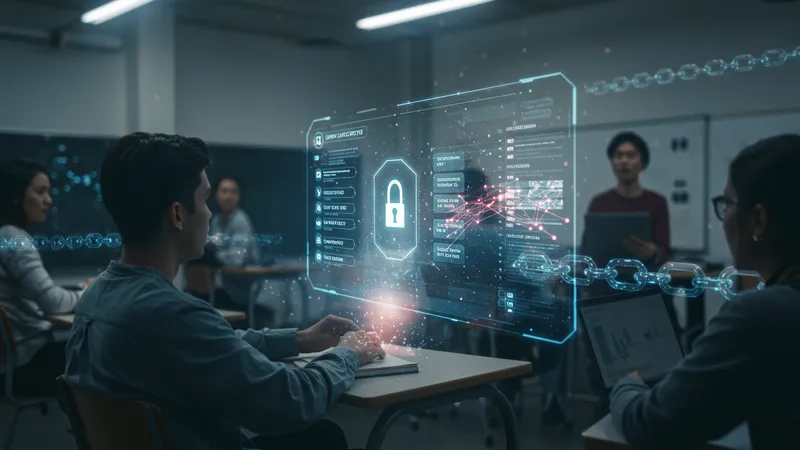
Blockchain can store credentials securely, making degree verification instantaneous. This eliminates the hassle of background checks and the ambiguity surrounding online certifications. Imagine waving goodbye to all credential veracity issues—fascinating, isn’t it?
Yet another application is record-keeping. Blockchain networks guarantee that course completion data remains immutable, ensuring student achievements are perpetually verifiable. Could this be a glimpse into the education sector of the future?
As blockchain's role grows, it promises to enhance trust and transparency in online education. But is there a hidden challenge accompanying this tech-savvy future? Turn the page to unravel more...
Online courses cater to a global audience, breaking borders that traditional educational institutions couldn't penetrate. This newfound reach fosters unparalleled diversity in classrooms, enhancing cultural exchanges and perspectives. Isn’t that a compelling backdrop for modern education?

Language accessibility remains a cornerstone, with translations and multilingual support breaking down linguistic barriers. Right from Tokyo to Timbuktu, accessing a prestigious U.S. or European course becomes a reality—not a luxury.
Yet with global accessibility comes the challenge of regional accreditation. While courses gain global appeal, local recognition isn't always guaranteed. It’s a tripping point that might surprise you.
Still, the vast reach of online education sparks new possibilities for cultural and educational exchange at levels unprecedented in human history. Could this be the dawn of a truly global learning ecosystem? There’s more worth exploring...
Assessment methods are undergoing transformation, embracing the digital shift. Online courses leverage technology to conduct proctored exams, quizzes, and project-based assessments to scale student evaluation. It's not simply about adaptation but innovation—are you amazed at how far we’ve come?
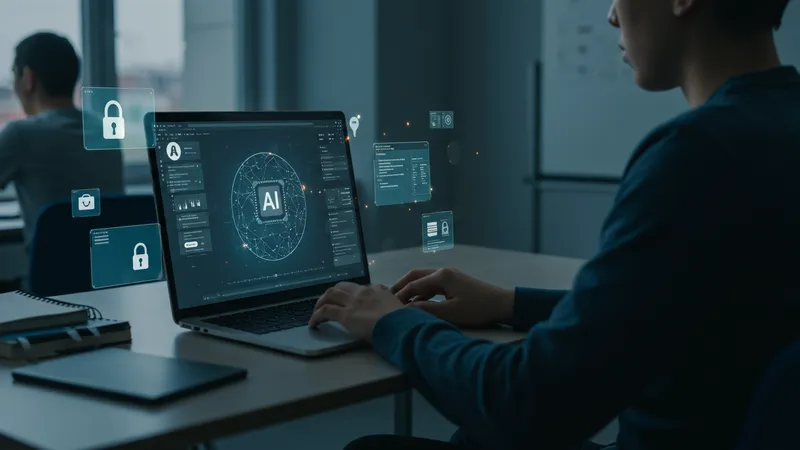
Remote proctoring technologies ensure exam integrity without sacrificing comfort. From AI monitoring to browser locks, these tools are rapidly evolving. Could they redefine how we gauge educational merit?
Moreover, such assessment innovations allow for varied testing methods beyond traditional practices. Adaptive testing aligns with one’s learning curve—a robust alternative to standardized exams that may not fit everyone’s learning style. Isn’t that the ultimate personalization?
The shift towards an adaptive, varied testing landscape enhances the learning experience, providing fairer indicators of student capabilities. What might this mean for future evaluation standards in education? Continue reading to discover more.
Language learning online has evolved, integrating real-time interactions and immersive experiences that rival classroom settings. Platforms utilize natural language processing to make interactive learning a reality. But did you expect this level of sophistication?
Many courses now include live sessions with native speakers, ensuring nuanced understanding and practical application. Isn’t this reminiscent of a cultural immersion program minus the hefty price tag?
What’s more, AI-driven apps provide instant feedback, refining pronunciation and grammar accuracy. Such technology closes the gap between classroom learning and real-world application—surprised to see how much tech plays a role?
The push towards accessible, interactive language learning is revolutionizing how languages are taught, embraced, and utilized globally. Could this be the dawn of linguistic diversity like we’ve never seen before? The next page reveals even more...
Online courses extend unforeseen benefits to employers, too. They serve as efficient tools for upskilling staff, adapting to rapid industry changes with agility. Shall we talk about a win-win scenario?

Employers leverage these courses to bolster their workforce without the logistical challenges of traditional training programs. Immediate course deployment and up-to-date material mean an ever-evolving team. Isn’t that perfect for a dynamic market?
Furthermore, they assess potential employees by evaluating their course selections and certifications, better understanding their skillsets prior to hiring. Have you ever thought of it from this angle?
Embracing online learning could redefine talent acquisition and development, aligning with business strategies far quicker than traditional methods. Are blended learning environments the future of professional development? Read on to uncover the possibilities.
The evolution of online courses continues to reshape modern education and how it addresses industry demands. From redefined learning analytics to newfound global accessibility, this digital revolution is more than just a passing trend—it's the future.
The question remains, how will you embrace these changes? Discover a world of opportunity, ready to illuminate your path. If there's one takeaway, it’s that the digital landscape is ripe for those ready to learn. Share this article to spread awareness, or better yet, dive into an online course today and start your transformative journey towards knowledge and innovation.